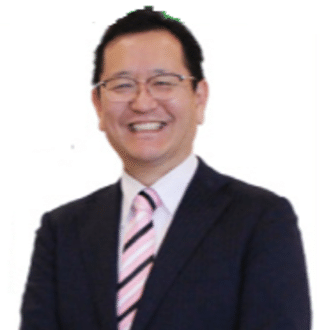
習近平主席は若者に「苦々しさ」ではなく質の高い雇用を求める/FTを読む
Xi Jinping calls for quality jobs for youth instead of ‘bitterness’
習近平主席は若者に「苦々しさ」ではなく質の高い雇用を求める
Chinese president prioritises employment creation a year after he told the young to toughen up and embrace hardship
中国国家主席、若者に強くなり困難を受け入れるよう呼びかけてから1年、雇用創出を優先
A year after telling young people in China struggling to get a job that they should “eat bitterness”, or endure hardship, Xi Jinping has changed his tune as the world’s second-largest economy struggles to return to full health.
就職に苦労する中国の若者に対し、「苦難に耐える」べきだと説いてから1年、世界第2位の経済大国が完全な回復に苦戦する中、習近平国家主席は態度を変えた。
With youth unemployment still running at nearly three times the overall rate, China’s president sounded a more sympathetic note on Tuesday, ordering the Communist party’s politburo leadership group to make the provision of “high-quality full employment” an economic priority.
若者の失業率が依然として全体の3倍近くに達する中、中国の国家主席は火曜日、共産党政治局指導部に対し「質の高い完全雇用」の実現を経済上の優先課題にするよう命じ、より同情的な姿勢を示した。
This was in stark contrast to his comments to youth last May that they should embrace difficulties as he did in the 1960s when, as a teenager during Mao Zedong’s Cultural Revolution, he was sent to the countryside to do manual labour, including shovelling manure.
これは、1960年代に毛沢東の文化大革命の時代に10代だった彼が、肥料をシャベルで掘るなどの肉体労働をするために田舎に送られた時のように、若者は困難を受け入れるべきだと昨年5月に若者に語った言葉とは全く対照的だ。
On Tuesday, Xi told the politburo to “give top priority to the employment of college graduates and other youth groups”.
習主席は火曜日、政治局に対し「大学卒業生やその他の若者層の雇用を最優先する」よう指示した。
“[We should] develop more jobs that are conducive to giving full play to their knowledge and strengths,” state news agency Xinhua quoted him as saying.
「(我々は)彼らの知識と強みを十分発揮できるような仕事をもっと開発すべきだ」と国営通信社新華社は同氏の発言を引用した。
China’s economy grew more than 5 per cent in the first quarter compared with a year earlier. But economists say the recovery is patchy — supported by manufacturing, exports and government investment, but with household consumption and investor sentiment still affected by a slump in the property sector.
中国経済は第1四半期に前年同期比5%以上成長した。しかし経済学者らは、回復は不均一だと指摘する。製造業、輸出、政府投資に支えられているものの、家計消費と投資家心理は依然として不動産部門の低迷の影響を受けており、回復は不安定だという。
China’s unemployment rate for those aged 16-24 was running at above 21 per cent in June last year, when the National Bureau of Statistics suddenly stopped reporting the figures, citing the need to improve the methodology.
中国の16~24歳の失業率は昨年6月に21%を超えていたが、国家統計局は方法論の改善が必要だとして突然統計の公表を停止した。
The government started releasing figures for youth unemployment again in December, but this time excluded students. The figure came in at 14.7 per cent in April, down from 15.3 per cent a month earlier, but still much higher than the urban unemployment rate of 5 per cent.
政府は12月に再び若者の失業率の統計を発表し始めたが、今回は学生を除外した。4月の数字は14.7%で、前月の15.3%からは減少したが、それでも都市部の失業率5%よりははるかに高い。
In his statement to the politburo, Xi said leaders needed to “encourage young people to engage in employment and entrepreneurship in key areas, key industries, [and] urban and rural grassroots and small and medium-sized enterprises”.
習主席は政治局への声明で、指導者らは「若者が主要分野、主要産業、都市部と農村部の草の根企業、中小企業で雇用と起業に従事することを奨励する必要がある」と述べた。
About 12mn graduates are set to enter China’s workforce this year, but many complain they cannot find work commensurate with their qualifications or with salaries high enough to justify the expense of going to university.
今年、約1,200万人の大学卒業生が中国で労働力として働く予定だが、その多くは自分の資格に見合った仕事や、大学進学にかかる費用に見合うだけの給料の仕事が見つからないと不満を漏らしている。
Leaders needed to analyse “the reasons for the labour gap in some industries, and solve the problem of ‘there are jobs but no one to do them’”, Xi told the politburo.
習主席は政治局に対し、指導者らは「一部の産業における労働力の格差の原因を分析し、『仕事はあるのにやる人がいない』という問題を解決する」必要があると語った。
A year ago, Chinese official media released articles emphasising how Xi’s experiences in the countryside in 1969 were an example for today’s youth.
1年前、中国の官営メディアは、習近平主席が1969年に田舎で経験したことが今日の若者にとっての手本であることを強調する記事を発表した。
“To collect manure you had to take off your shoes, roll up your trouser legs, [and] jump in barefoot,” said one article, which mentioned eating bitterness nearly 30 times, quoted him as saying. “He [Xi] was covered in sweat and manure and urine, mixed together, wet and smelly.”
「肥料を集めるには、靴を脱いで、ズボンの裾をまくり上げ、裸足で飛び込まなければならなかった」と、苦味を食べることについて30回近く言及したある記事は習主席の言葉を引用している。「習主席は汗と肥料と尿にまみれ、混ざり合って濡れて臭かった」
The article said that “only by passing the labour test and establishing the idea of ‘seeking hardship for oneself’ can you . . . make your thoughts closer to the people”.
記事には、「労働試験に合格し、『自ら困難を求める』という考え方を確立することによってのみ、自分の考えを人民に近づけることができる」と書かれていた。
In other comments to the politburo, Xi told cadres to take measures to promote the employment of migrant workers — the millions of people who move within China for work.
政治局への他の発言の中で、習主席は幹部に対し、仕事のために中国国内を移動する何百万人もの人々、つまり移民労働者の雇用を促進するための措置を講じるよう指示した。
As construction work has dried up with the property slowdown, many labourers have had to look for other jobs, with some returning to their hometowns and villages.
政治局への他の発言の中で、習主席は幹部に対し、仕事のために中国国内を移動する何百万人もの人々、つまり移民労働者の雇用を促進するための措置を講じるよう指示した。
“Stabilise the scale of employment and income of people who have been lifted out of poverty, and prevent large-scale return to poverty due to unemployment,” Xi told the politburo.
「貧困から脱却した人々の雇用と収入の規模を安定させ、失業による大規模な貧困への再陥落を防ぐ」と習主席は政治局に語った。
英語学習と世界のニュースを!
いいなと思ったら応援しよう!

